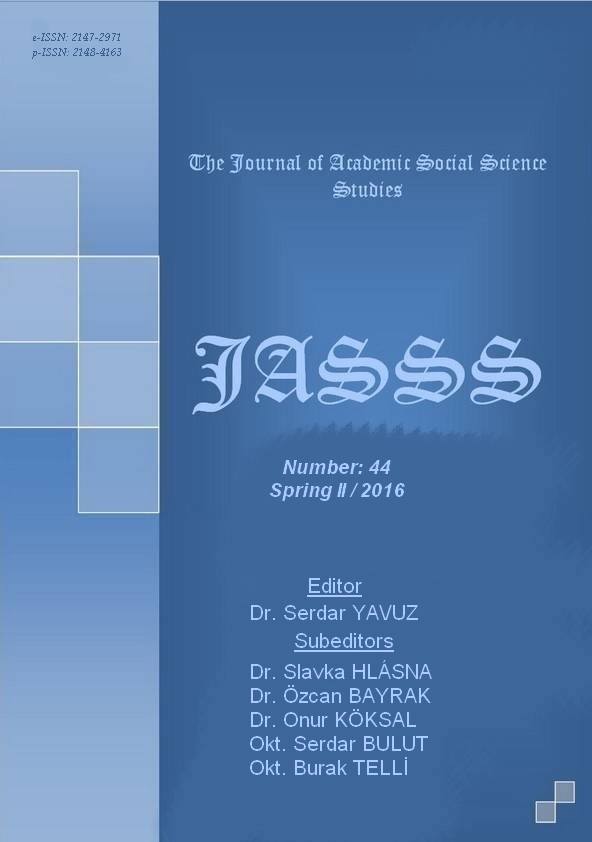Author :
Abstract
Bu çalışmada ünlü İslam filozofu İbn Rüşd’ün (ö. 595/1198) ergenlik ve yetişkinlik dönemi psikososyal gelişim kuramına göre incelenmiştir. Filozofun hayatıyla ilgili kısa bilgilere yer verildikten sonra psikososyal gelişim kuramı genel özellikleriyle tanıtılmaya çalışılmıştır. Ergenlik ve yetişkinlik dönemlerine ait psikososyal gelişim kuramının açıkladığı her bir evrenin gelişim özellikleri hakkında bilgi verilmesinin ardından kuramsal çerçevenin içerisinde İbn Rüşd’ün yaşantıları tartışılmıştır. Ayrıca filozofun ergenlik öncesi gelişim evrelerine kısaca değinilmiş ve bu evrelere ait çatışmaları çözme konusunda başarılı olduğu varsayılmıştır. Çalışmada İbn Rüşd’ün sosyal etkinin yoğun olarak hissedildiği ve toplumsallığın vurgulandığı İslam kültür ve medeniyetinin içerisinde yetişmiş olması ve kişilik gelişiminde bir patoloji aramaktan ziyade, kişilik gelişiminin seyrinin incelenmesinin amaçlanmış olmasından dolayı psikososyal gelişim kuramı tercih edilmiştir. İncelemede psikososyal gelişim kuramına göre İbn Rüşd’ün ergenlik ve yetişkinlik dönemlerine ait kimlik kazanmaya karşı rol karmaşası, yakınlığa karşı yalıtılmışlık, üretkenliğe karşı verimsizlik ve benlik bütünlüğüne karşı umutsuzluk evrelerine ait gelişim görevlerini yerine getirdiği ve evrelere ait çatışmaları çözme konusunda başarılı olduğu görülmüştür. Yaşantıları arasında yalnızca üretkenliğe karşı verimsizlik evresinin aşırı uç özelliklerinden birisi olan aşırı yayılma olarak yorumlanabilecek bir durum söz konusu olmuştur. Yaşadığı çağa iz bırakmış olmasının yanı sıra düşüncelerinin etkisinin kendisinden sonra yüzyıllarca devam etmiş olmasının arkasındaki etkenlerden birisinin de psikososyal gelişimindeki başarısının olduğu düşünülmektedir.
Keywords
Abstract
In this study, the young adulthood and adolescence of noted Islamic philosopher Ibn Rushd (d. 595/1198) were examined according to the psychosocial development theory. After a short information about the philosopher's life is given, the psychosocial development theory is introduced with the general features. Ibn Rushd's life has been discussed in theoretical framework after the information about development feautures of all stages of adolescence and young adulthood that psychosocial development explains, is given. Also the philosopher's pre-pubescent stage of development is briefly mentioned and it is assumed that he is successful in resolving conflicts related to these stages. In this study there are two reasons for choosing psychosocial development theory. The first reason is that Ibn Rushd was grown in Islamic culture and civilization that social impact is strongly felt and the other reason is that it is preferred to examine the course of Ibn Rushd's personality development rather than the search for a pathology in his personality development. According to the psychosocial development theory, Ibn Rushd is found to be successful about resolving conflicts of adolescence and young adulthood; winning identity versus role confusion, isolation against intimacy, productivity versus inefficiency, self integrity against desperation. Only extreme exposure which is one of the extreme characteristics of the inefficiency against productivity stage has been seen in his life. It is also considered that one of the factors behind the continiued impact of his thoughts through the centuries and the traces he left to he age that he lived is his success in his psychosocial development.





